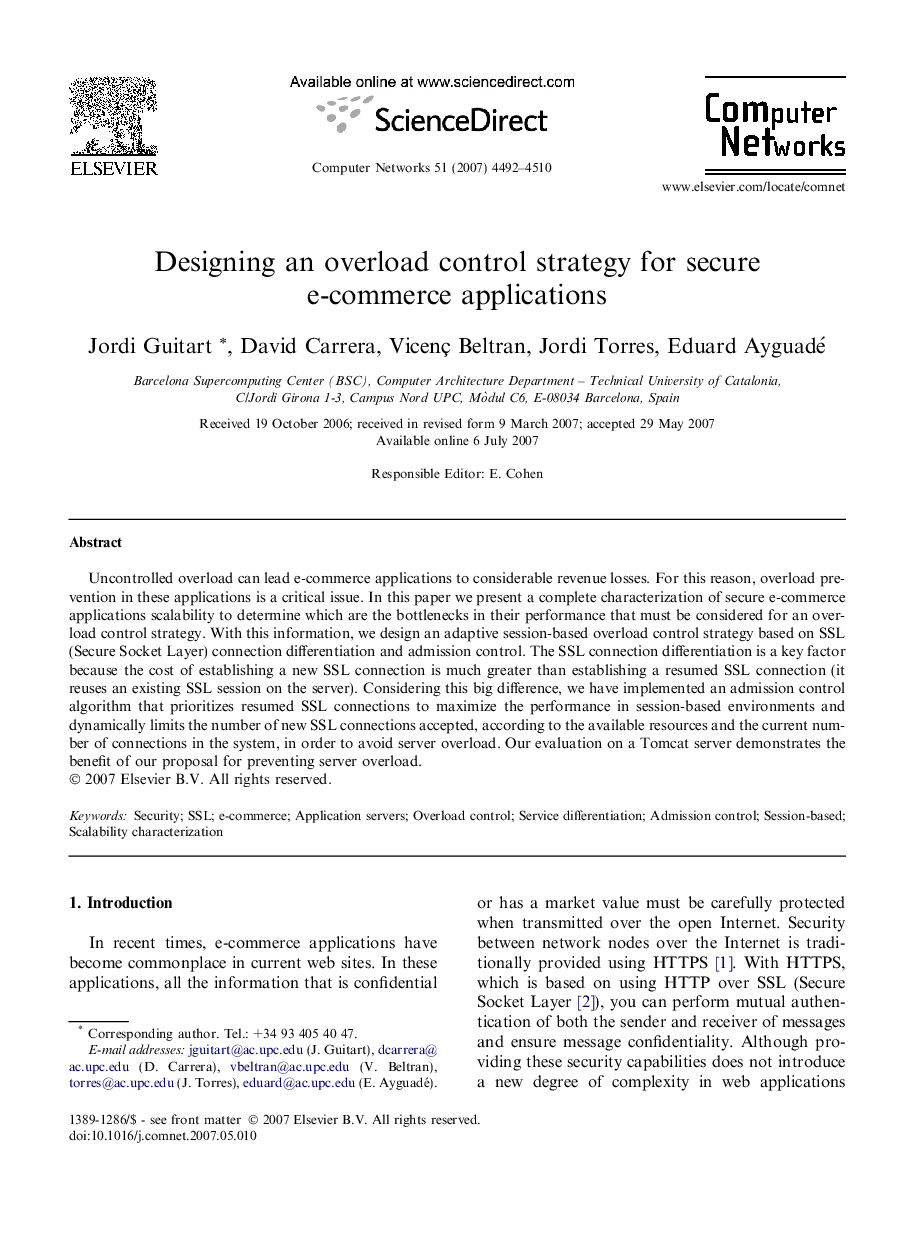| Article ID | Journal | Published Year | Pages | File Type |
|---|---|---|---|---|
| 451356 | Computer Networks | 2007 | 19 Pages |
Uncontrolled overload can lead e-commerce applications to considerable revenue losses. For this reason, overload prevention in these applications is a critical issue. In this paper we present a complete characterization of secure e-commerce applications scalability to determine which are the bottlenecks in their performance that must be considered for an overload control strategy. With this information, we design an adaptive session-based overload control strategy based on SSL (Secure Socket Layer) connection differentiation and admission control. The SSL connection differentiation is a key factor because the cost of establishing a new SSL connection is much greater than establishing a resumed SSL connection (it reuses an existing SSL session on the server). Considering this big difference, we have implemented an admission control algorithm that prioritizes resumed SSL connections to maximize the performance in session-based environments and dynamically limits the number of new SSL connections accepted, according to the available resources and the current number of connections in the system, in order to avoid server overload. Our evaluation on a Tomcat server demonstrates the benefit of our proposal for preventing server overload.
